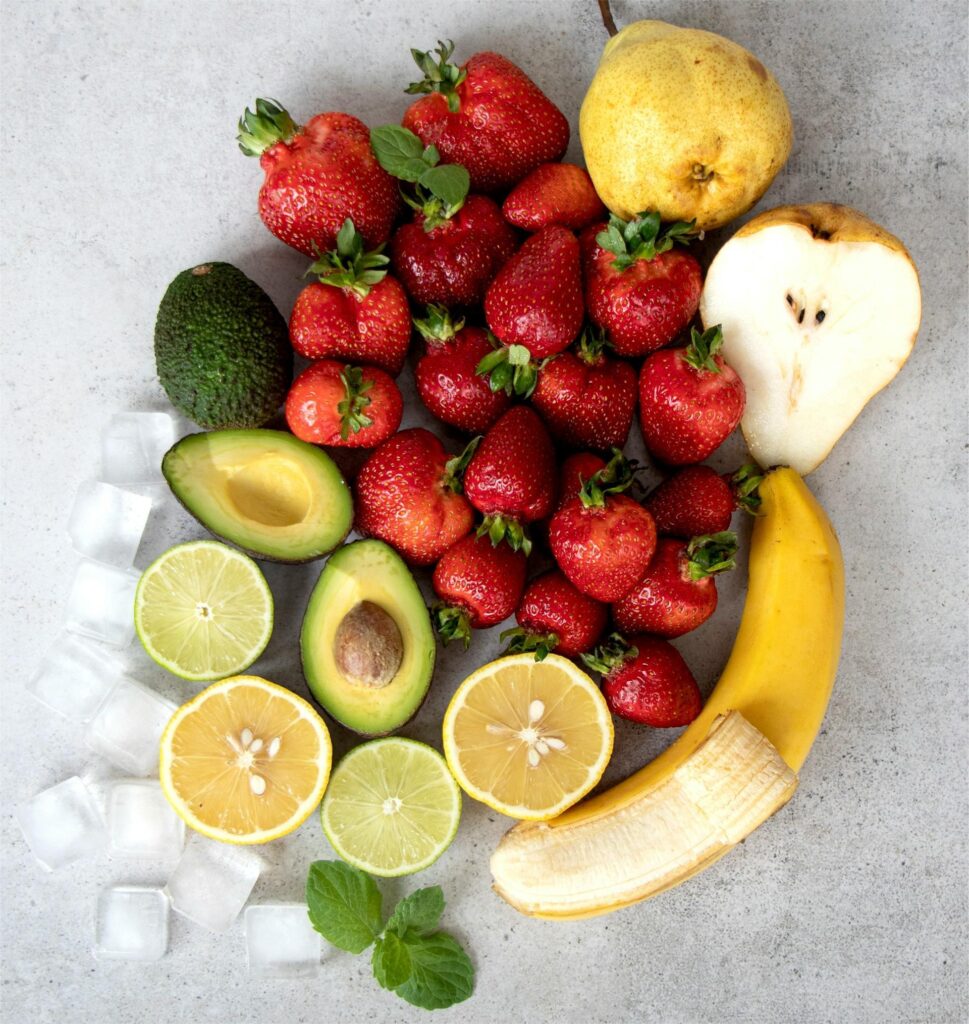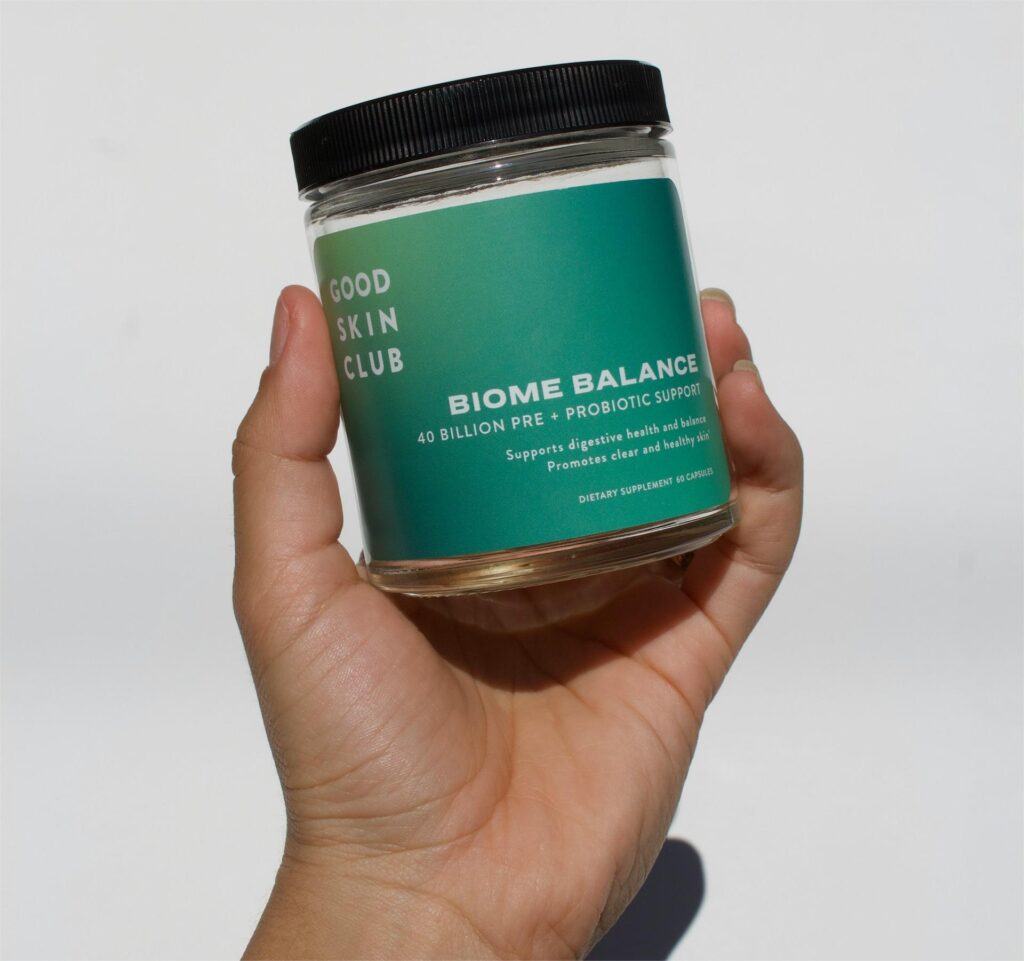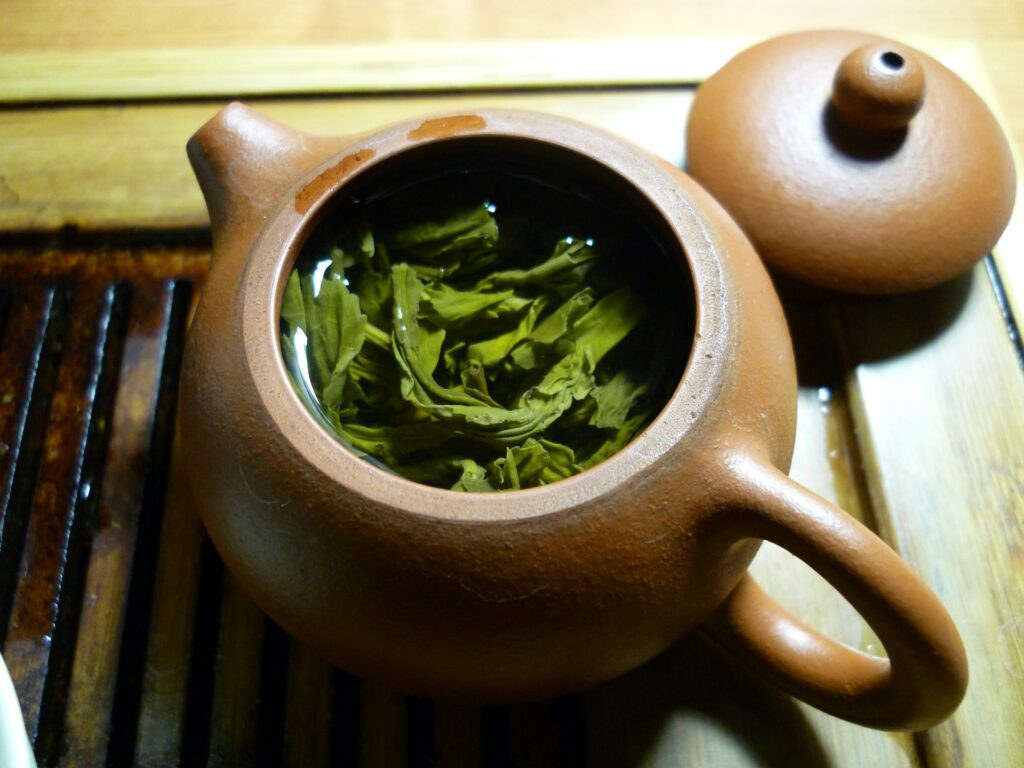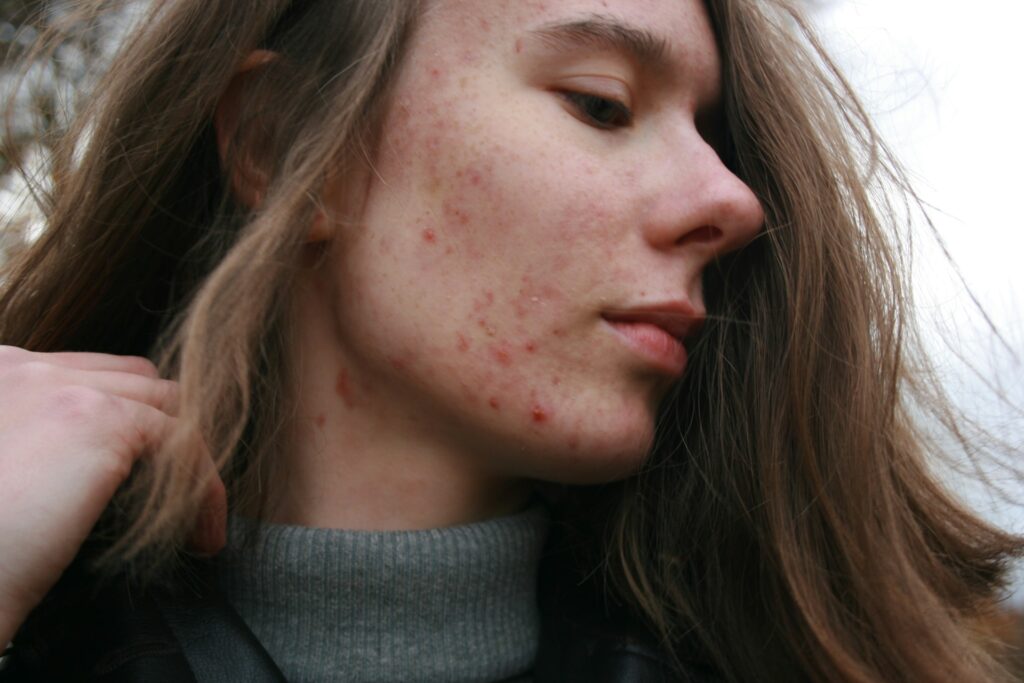- Introduction
- Does Nutrition Affect Acne?
- The Basic Rules of an Acne-Friendly Nutrition Plan
- Foods to Eat for Acne for getting proper Nutrition
- Foods to Avoid for Acne
- The Loop Between Nutrition and Acne: A Historical Perspective
- Recent Research on Nutrition and Acne
- Vitamins and Minerals for Acne-Prone Skin
- Foods that Exacerbate Acne
- What to consume Instead
- Conclusion
Introduction
Acne is a common skin condition that affects many people, especially during their teenage years. Maintaining a proper skincare routine and a nutrition plan rich in certain nutrients can significantly help in fighting acne. This article explores the connection between nutrition and acne and provides guidelines on foods to eat and avoid for comprehensible skin.
Does Nutrition Affect Acne?
Various factors including hormonal balance, emotional stress, inflammation, and skincare habits influence acne development. Among these, nutrition plays a crucial role. Research has shown that certain foods can trigger acne, while others can help reduce inflammation and support skin health. Studies have consistently demonstrated the impact of nutrition on acne, highlighting the importance of choosing the right foods. For instance, a diet high in refined carbohydrates and sugars can increase insulin levels, stimulating oil production and clogging pores. On the other hand, foods rich in antioxidants and anti-inflammatory properties can help reduce the severity of acne.
The Basic Rules of an Acne-Friendly Nutrition Plan
Adopting a nutrition plan to manage acne involves focusing on low-processed foods and emphasizing fresh fruits and vegetables rich in antioxidants. Consuming foods with a low glycemic index, which does not spike blood sugar levels, is significant. Additionally, it’s important to avoid foods that can inflame acne, such as dairy products, chocolate, and hot spices. Here are some basic rules to follow:
- Eat a Balanced Diet: Ensure your diet includes a variety of fruits, vegetables, whole grains, lean proteins, and healthy fats. A balanced diet provides essential nutrients that support overall skin health.
- Stay Hydrated: Drinking plenty of water helps flush out toxins from your body and keeps your skin hydrated, reducing the likelihood of breakouts.
- Avoid High-Glycemic Foods: Foods that cause a rapid spike in blood sugar levels can increase insulin levels, leading to more oil production and clogged pores. Opt for low-glycemic foods instead.

- Limit Dairy Intake: Some studies suggest a link between dairy consumption and acne breakouts. Consider reducing your intake of milk, cheese, and other dairy products.
- Incorporate Anti-Inflammatory Foods: Foods rich in omega-3 fatty acids, such as fish and flaxseeds, have anti-inflammatory properties that can help reduce acne severity.
Foods to Eat for Acne for getting proper Nutrition
- Seafood: Rich in omega-3 fatty acids and zinc, seafood helps reduce inflammation and promotes skin health. Omega-3s are essential fats that your body cannot produce on its own, making it important to get them from your diet.
- Whole Grains: High in fiber and B vitamins, whole grains support overall skin function and reduce breakouts. They also help regulate blood sugar levels, preventing insulin spikes that can lead to acne.
- Eggs: Packed with protein and essential nutrients, eggs help repair and maintain skin tissue. They are also a good source of biotin, which is important for skin health.

- Nuts and Seeds: Rich in vitamin E and essential fatty acids, nuts and seeds protect skin cells from damage. Almonds, walnuts, chia seeds, and flaxseeds are particularly beneficial.
- Sea Fish and Rapeseed Oil: These contain omega-3 fatty acids, which are anti-inflammatory and beneficial for the skin. Salmon, mackerel, and sardines are excellent choices.
- Leafy Greens (Spinach, Kale): High in antioxidants, these vegetables help detoxify the skin and reduce acne. They are also rich in vitamins A, C, and K, which promote healthy skin.

Foods to Avoid for Acne
Avoiding certain foods can help manage acne effectively. These include:
- Highly Processed Foods: These often contain simple sugars, salt, trans fats, and preservatives that can trigger acne. Processed snacks, fast food, and sugary cereals are common culprits.
- Sweets and Sugary Drinks: High sugar intake spikes insulin levels, which can lead to increased oil production and acne. Soda, candy, and desserts should be limited.

- Fast Food and Salty Snacks: These foods are often high in unhealthy fats and sodium, contributing to inflammation. Fried foods, chips, and processed meats should be avoided.
- Fatty Meats: High in saturated fats, these can exacerbate acne. Reducing your intake of fatty cuts of beef, pork, and lamb can help.
- White Bread and Refined Grains: These have a high glycemic index, leading to rapid spikes in blood sugar. Opt for whole-grain alternatives instead.
- Dairy Products: Some studies suggest a link between dairy consumption and acne breakouts. Consider trying plant-based milk alternatives.
- Chocolate and Hot Spices: These can trigger inflammation and worsen acne for some individuals. If you notice a pattern, try eliminating them from your diet.
The Loop Between Nutrition and Acne: A Historical Perspective
Historically, the connection between nutrition and acne has been debated. Early speculation linked acne to the consumption of processed foods, bananas, nuts, and chocolate. However, flawed studies in the 1960s led to the dismissal of these claims. In recent years, there has been a renewed interest in the role of nutrition in acne development, with more rigorous studies supporting the link between diet and skin health.
Recent Research on Nutrition and Acne
Recent research has observed that non-Western societies with traditional diets have significantly lower rates of acne compared to those following a Western diet. Western diets, characterized by high glycemic load foods, have been linked to higher acne prevalence. Studies have found that high insulin levels, dairy consumption, and foods with a high glycemic index contribute to acne development.
Vitamins and Minerals for Acne-Prone Skin
Certain vitamins and minerals are particularly important for managing acne. These include:
- Vitamin E: Found in sunflower seeds, almonds, and hazelnuts, vitamin E protects skin cells from damage. It also has antioxidant properties that help reduce inflammation.
- Vitamin A: Present in liver, oily fish, and eggs, vitamin A helps regulate skin cell production. Retinoids, a derivative of vitamin A, are commonly used in acne treatments.
- B Vitamins: Whole grains and legumes are rich in B vitamins, which support overall skin health. Vitamin B6, in particular, has been shown to reduce acne in some individuals.
- Zinc: This mineral, found in seafood and nuts, helps control oil production and reduce inflammation. Zinc supplements are often recommended for acne management.

Foods that Exacerbate Acne
Some foods are known to worsen acne due to their impact on blood sugar and inflammation. These include:
- Refined Sugars and Grains: These cause rapid spikes in blood sugar, leading to increased oil production. Consuming whole grains instead can help stabilize blood sugar levels.
- High Glycemic Index Foods: Foods like white bread and sugary snacks can trigger acne. Opt for low-glycemic alternatives like oats, quinoa, and sweet potatoes.
- Dairy Products: Some studies suggest that dairy can increase acne breakouts. If you notice a correlation, try reducing or eliminating dairy from your diet.
- Omega-6 Fatty Acids: Found in some vegetable oils, these can promote inflammation. Balancing your intake with omega-3 fatty acids can help reduce inflammation.
- Chocolate: While the evidence is mixed, some individuals may find that chocolate worsens their acne. Dark chocolate with lower sugar content may be a better option.
What to consume Instead
To manage acne, focus on consuming:
- Low Glycemic Index Foods: These help maintain stable blood sugar levels. Examples include whole grains, legumes, and most vegetables.
- Complex Carbohydrates: Found in whole grains and vegetables, these support skin health. Brown rice, quinoa, and barley are excellent choices.
- Omega-3 Fatty Acids: Present in fish and flaxseeds, these reduce inflammation. Including fish like salmon and mackerel in your diet can be beneficial.

- Probiotics: Found in yogurt and fermented foods, probiotics support gut health, which can impact skin health. Kimchi, sauerkraut, and kefir are good sources.
- Green Tea and Turmeric: Both have anti-inflammatory properties beneficial for acne-prone skin. Drinking green tea daily and incorporating turmeric into your meals can help.

Conclusion
A proper nutrition plan is essential for managing acne. By focusing on nutrient-rich foods and avoiding those that can trigger breakouts, you can support your skin health and reduce acne. Combining a balanced diet with proper skincare and treatments can lead to clearer, healthier skin. For personalized advice, it’s always best to consult with a specialist who can tailor recommendations to your specific needs. Remember, changes in diet may take several weeks to show results on your skin, so be patient and consistent with your new eating habits.


